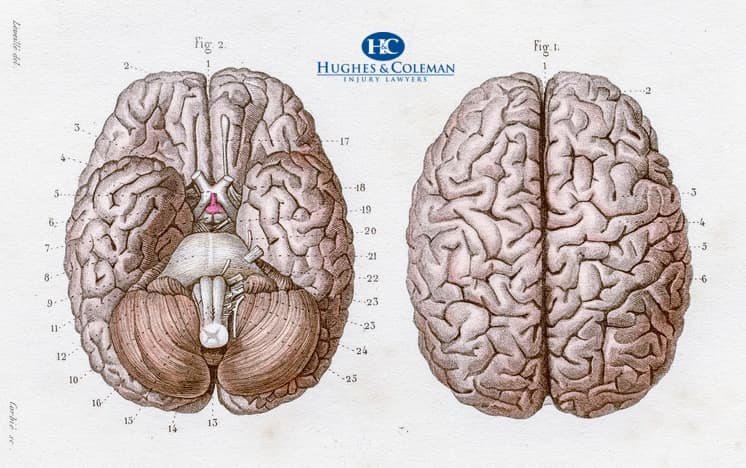-

Although an estimated 2% of the American population is affected by traumatic brain injury, public awareness of this issue remains low. Brain Injury Awareness Month may help change that.
This is the part I of our three-part series on traumatic brain injury for the TBI Awareness Month. Part II and part III will be made available throughout March.
“From the brain, and from the brain only, arise our pleasures, joy, laughter and jests, as well as our sorrows, pains, griefs, and tears”.
When 5th-century Greek physician Hippocrates, who is widely referred to as The Father of Medicine, uttered those words more than two millennia ago, they were likely a revolutionary insight. Nowadays, though, the knowledge that all of our experiences arise from a complex interplay of chemical and electrical signals in a 3-pound mass of jelly called the brain is so widespread that we practically take it for granted.
Usually, it is not until something goes wrong with this intricate loom of neurons and synapses that we realize how precious and delicate this organ is, and how it gives rise to everything that makes a person a unique individual.
According to the Centers for Disease Control and Prevention (CDC), an estimated 5.3 million Americans, or 2% of the population, currently live with a disability related to a traumatic brain injury (TBI). The Brain Injury Association of America (BIAA) estimates that, in the U.S., a brain-injury event happens every 13 seconds. Approximately 52,000 people die as a result of TBI each year, making it the leading cause of death and disability in children and adults between the ages 1 and 44.
By virtually every metric, then, TBI is a wide-spread medical issue with grave consequences for the victim as well as their family. At the same time, in many respects, it is also a silent, misunderstood, and misrepresented disease.
For persons suffering from most other types of debilitating injury, evidence of the life-altering impact and the ensuing daily struggle is evident to everyone around them. For sufferers of traumatic brain injury, on the other hand, there is often no such evidence. No visible bodily damage to testify to the seriousness of the condition; no wounds or scars; no crutches, no wheelchair in the back of the car. And yet, those who have to live with the consequences of TBI day in and day out, both the survivors and their family members, know that brain injury is as real and as serious as any other disability.
Traumatic brain injury is a topic that we take very seriously at Hughes & Coleman. In our practice as personal injury attorneys, we have assisted clients suffering from TBI and conditions resulting from it. We have seen first hand the debilitating effects TBI can have on a person’s life; we know it can also take a hard toll on their family. Yet, whenever we have dealt with a personal injury case involving TBI, we have been moved and inspired by the resilience and grit of the individuals who manage to make their lives productive and fulfilling despite the challenges.
We have decided to join the efforts of the BIAA in recognizing March as Brain Injury Awareness Month. The theme of the BIAA-led campaign that starts this month is; “Change Your Mind”.
As stated on the BIAA official website, the campaign aims to provide “a platform for educating the general public about the incidence of brain injury and the needs of people with brain injuries and their families”.
The next article in this series about TBIs will discuss the medical details of the different types of TBI. The third and final article will offer practical suggestions on how friends or family members of TBI survivors may help them with their daily struggles and to the extent possible, with their recovery. It will also help those affected by TBI to decide whether they should obtain legal advice on their case. By dedicating this month’s blogs to the issue of traumatic brain injury, we hope to support BIAA in their ongoing endeavor to de-stigmatize brain injury and empower those who have survived it.
Get In Touch Today!
We offer free consultations 24/7 and there will always be someone here to take your call. Call our personal injury lawyers today for a free consultation or fill out this form and we will contact you.
We serve clients across Tennessee and Kentucky and we have several offices throughout both states. See all of our locations and contact us today.


